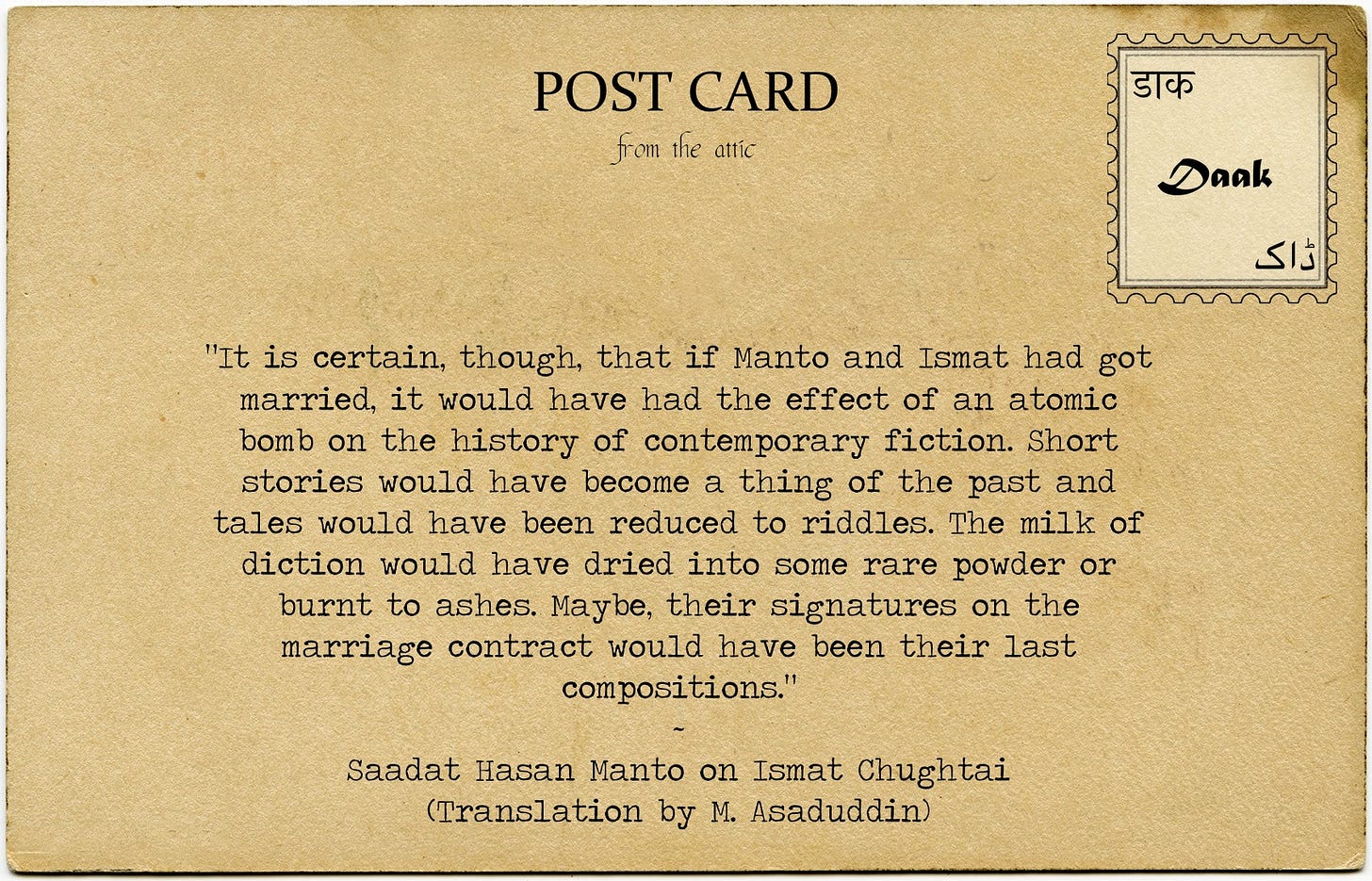In a world that rewards silence and conformity, speaking about social taboos can be a risky and isolating business. For this transgression, many writers have been subjected to suspicion, hostility and exclusion. It is no wonder then that they seek out friendships with like-minded souls, which serve as oases of fearless intellectual growth. The friendship between Saadat Hasan Manto and Ismat Chughtai, the doyens of Urdu Literature, is perhaps the most well-known example of such a friendship.
We have previously written about Chughtai’s loving but heartbreaking tribute to her greatest friend-enemy, Manto. In turn, Manto offers his own perspective in an essay simply titled “Ismat Chughtai”. Prompted by a fan’s speculation on why they never got married — which Manto calls a “ludicrous idea” — he begins an examination of their relationship.
“It is certain, though, that if Manto and Ismat had got married, it would have had the effect of an atomic bomb on the history of contemporary fiction. Short stories would have become a thing of the past and tales would have been reduced to riddles. The milk of diction would have dried into some rare powder or burnt to ashes. Maybe, their signatures on the marriage contract would have been their last compositions.”
Manto goes on to recall his first meeting with Chughtai, where he criticises the ending of her most controversial story, “Lihaaf”. Not one to be silenced into submission, Chughtai responds with her characteristic defiance. Gradually, Manto develops a deeper admiration for her craft, and especially her unique perspective as a woman writer. In this essay, he reveals many of her quirks and eccentricities, that are sometimes amusing — like her habit of chewing on ice while lying down on a charpoy (hand-woven bed) and composing her stories — and sometimes telling of her indomitable spirit.
“Ismat is very stubborn. Obstinacy is her second nature. In this she is almost child-like. She will never accept any view or even a natural law without a show of resistance. First, she refused to get married; when she somehow agreed to that, she refused to become a mother. She will suffer and face troubles but will not give up her stubbornness. I think this is her strategy—to test life’s truths through her conflicts with them.”
In recounting nightlong arguments, family celebrations, travels and tribulations, Manto offers a rich and layered slice of his friendship with Chughtai. His fierce loyalty to her is evident in his curation and rebuttal to the critiques levied against her by other writers. He says,
“A lot has been said about Ismat and continues to be said. Some will like her, some won’t. But her creativity stands much above people’s liking or disliking. Good, bad, naked, covered—whatever, it must endure.”
Finally, can any piece of writing by Manto exist without his characteristic humour? Closing the case on whether he ever fell in love with her, he says,
“I did not fall in love with her; instead, my wife fell for her. However, if Safiya ever dares to express her love for her, Ismat is sure to say: “The cheek you have! Men of your father’s age have fallen for me!”
Translated by M. Asaduddin




Excellent piece